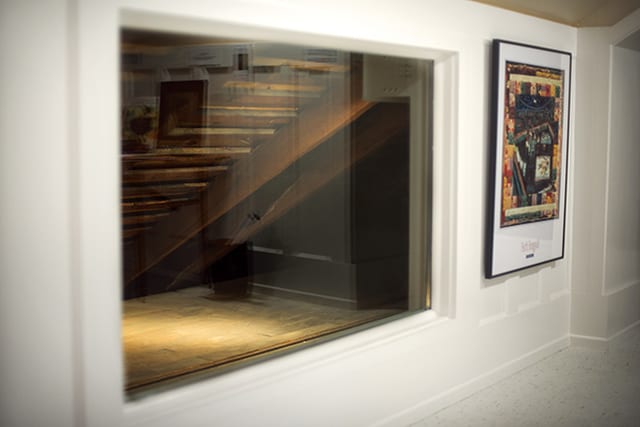STATE COLLEGE — Tucked away in the rolling hills of Happy Valley is a rich history that local historians, organizations and individuals are working endlessly on uncovering. Recently, the United Nations Association of Central Pennsylvania Chapter #151 led a discussion shedding light on a significant yet often overlooked chapter of Centre County’s past.
Titled “The Underground Railroad and Early African American Communities in Central Pennsylvania,” the presentation convened on Wednesday, June 5, at Schlow Centre Region Library. Robert Lumley-Sapanski, a director of UNA-CPA, guided the discussion, inviting the audience to “discover our region’s often overlooked role in African American history prior to, during and after the Civil War.”
Lumley-Sapanski reminisced about an epiphany he had in Bellefonte when he stumbled upon a panel called “The African American Footprints in the Sand of Bellefonte’s History.”
“So, you start looking at this and just find the most amazing stories,” he said. “I just became really interested and went down to the library and started digging up some other things.”
Lumley-Sapanski went on to explain that one of the first documents his research led him to was called “The Black Heroes of Bellefonte,” where the author went through many names and stories of people in the Black community of the region ranging from the 1700s to the 1900s.
One of the topics discussed in the presentation was the role Centre County played in the Underground Railroad. Lumley-Sapanski noted that unearthing this piece of history in Centre County can be difficult due to how secretive the Underground Railroad was in order to protect those seeking freedom and those offering their homes and buildings for the safety of others. While the region’s participation in the Underground Railroad is acknowledged, its full extent remains yet to be discovered.
Among the known sites affiliated with the Underground Railroad is Bellefonte’s historic Linn House, which is home to the Bellefonte Art Museum for Centre County. The art museum implemented a permanent exhibit in 2016 called “The Underground Railroad — A Journey to Freedom” after the discovery of a “secret room” in the Linn House.
The exhibit not only showcases the Linn House but also sheds light on other significant structures in Bellefonte discussed by Lumley-Sapanski, including the homes of William Thomas (The Wren’s Nest) and Samuel Harris, as well as the St. Paul African Methodist Episcopal Church.
Lumley-Sapanski went over an array of topics, discussing the extensive history of the Black community in Centre County and roles played, ranging from the musical legacy of the Mills Brothers in Bellefonte to Frederick Douglass’s address at the invitation of the Udine Fire Company. Additionally, Bellefonte took strides towards integration, with its schools becoming integrated in 1887, almost 70 years ahead of the federal mandate.
While central Pennsylvania boasts a rich baseball tradition, lesser known is the previous existence of numerous Black baseball teams in the region, spanning towns like Philipsburg, Altoona, Bellefonte and Hollidaysburg.
For Lumley-Sapanski, the involvement of UNA in researching and educating the community on these topics is necessary.
“You might say, ‘What does the United Nations have to do with this?’” he joked. “I think slavery is probably one of the greatest threats to people’s human rights.” He explained that the United Nations Association teamed up with the United Nations to create sustainable development goals.
“Amongst those goals are quality education, reduced inequalities, peace and justice and strong institutions. … I’m here to present these histories because these stories need to be told,” Lumley-Sapanski explained.
The United Nations Association of the United States of America, a non-partisan, nonprofit organization, aims to foster understanding and support for the ideals and work of the United Nations among American residents. UNA-CPA, formed in 1992, extends its reach beyond Centre County to encompass all of central Pennsylvania, engaging in educational and advocacy initiatives.
The organization has done other education programs and events, including on Syrian refugee camps in Jordan, UN Day programs, support for Model UN programs in schools, raising money for relief efforts and more. Currently, the UNA-CPA is raising money for the Ghana Medical Relief Project.
“This year, we’re focused on the Ghana Medica Relief Program that’s run out of State College, raising money to go over and provide free medical care and other assistance in Ghana,” Lumley-Sapanski said.
To learn more about UNA-CPA, upcoming events and projects or how to become a member, visit unacentralpa.org, check out the organization’s Facebook or email info@centralpa.org.




